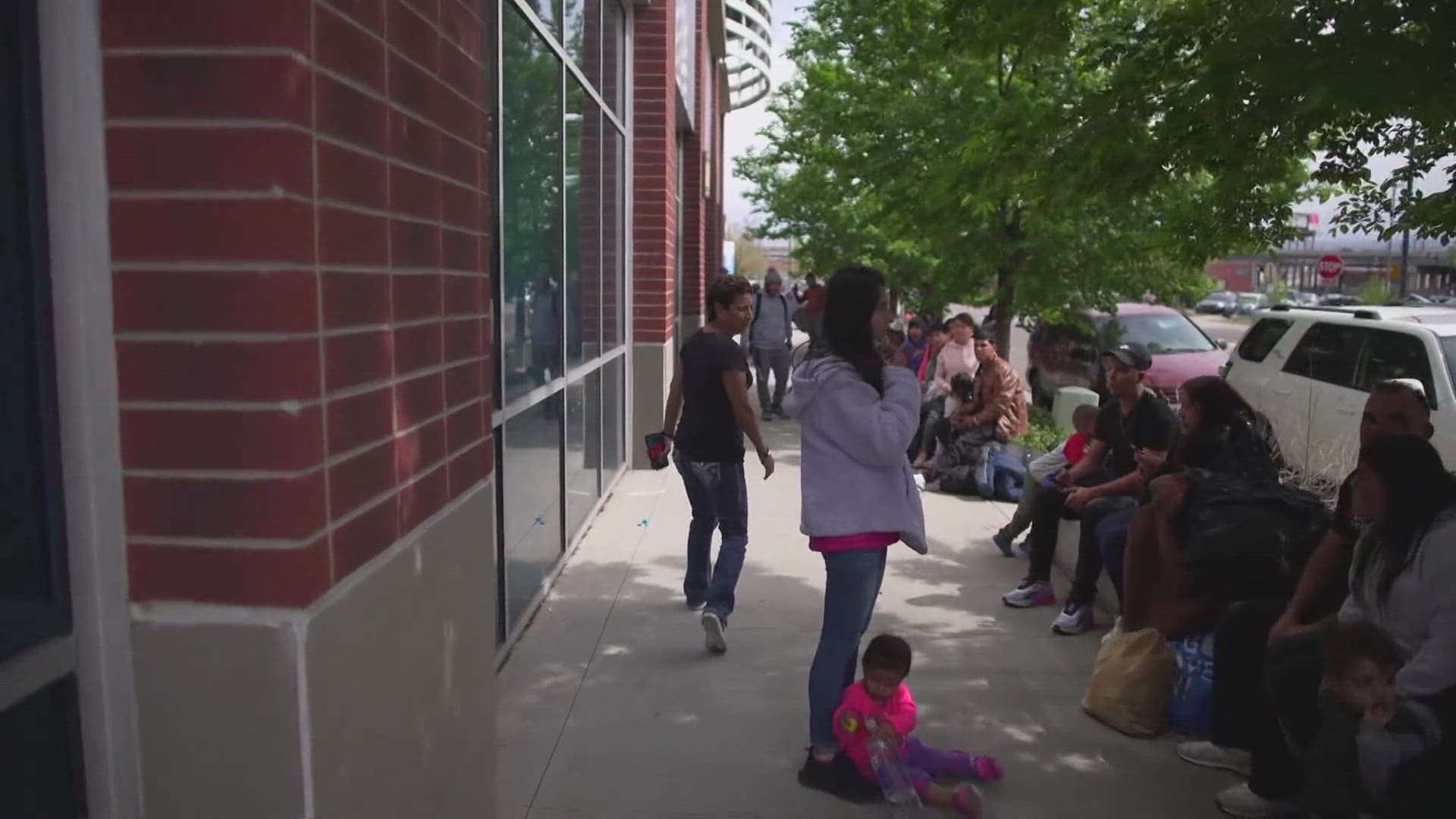DENVER — Denver Health is seeing a huge increase in emergency room visits for one group of patients.
In the past four years, Denver Health is seeing an increase of roughly 6000% in ER patients from one of these four countries: Venezuela, Colombia, Honduras and Ecuador.
And while the hospital says it doesn’t ask patients about their immigrant status, they believe most are migrants based on multiple other factors: they’ve traveled from the southern border, they often report their country of origin, they're uninsured and many are coming with health issues they contracted while on that long journey.
“Certainly the most common thing we're seeing is just a series of respiratory illnesses, you know, people who are in close proximity living, traveling by bus in close proximity," said Dr. Steve Federico, a Denver Health pediatrician and the hospital's chief of government and community affairs. "And so, infectious diseases are easily transmitted."
“If you take the month of October, for example, where we have complete data to report that population of people from Central and northern South America make up 10% of our emergency room visits for the month of October, which is just an astounding number for a relatively small population of people,” Federico said.


Federico said most of these ER patients seek care for respiratory illnesses, like the flu and RSV, which are already more common this time of year. Some are also struggling with diarrheal illnesses caused by traveling conditions or drinking contaminated water.
Many of the patients do not have health insurance, Federico said, and don't have a primary care doctor to go to. The emergency room is often their only place to go.
“From a financial standpoint, the vast majority of these patients will not have health insurance. So this will be largely uncompensated care," he explained. "As a result of their status, it's difficult for this these families to find work, which is actually what they really want to do is find work and re establish a life."


“It's been encouraging to see the city's efforts to try and help families do that. But in the meantime, they can't afford to pay for health insurance. So that largely goes unpaid," Federico said. "And at a Safety Net hospital such as Denver Health, where we already take care of many, many patients who can't afford health care, that adds an additional financial burden upon us. And that's been difficult.”
Denver Health hasn’t been the only place where migrant families are seeking care. Cathy Alderman, spokesperson for the Colorado Coalition for the Homeless, said the organization Stout Street Health Center has been busier, too.
She shared a statement via email Friday afternoon:
“The Colorado Coalition for the Homeless’ Stout Street Health Center has seen a steady increase of uninsured new patients over the last several months and many of those people have indicated that they have recently migrated here or been bussed here from the southwest border. Because they are uninsured and not eligible for traditional Medicaid, it means that we are providing that care without financial reimbursement which is putting strain on our resources. We need assistance from the local, state, and federal government so that we can continue to provide the desperately needed physical and behavioral health care that these new members of our community so desperately need."
SUGGESTED VIDEOS: Latest from 9NEWS

